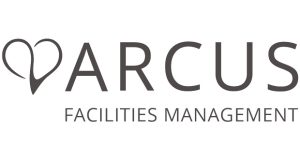 THE FM LECTURER’S VIEW
THE FM LECTURER’S VIEW
LUCY HIND,
SENIOR FM LECTURER, LEEDS BECKETT UNIVERSITY & MEMBER OF FMJ ED STEERING COMMITTEE
The facilities management sector plays a critical role in ensuring the smooth operation of buildings, infrastructure, and services, making it an essential component of the modern built environment. However, over the past decade, the number of universities and colleges offering postgraduate qualifications in FM has decreased.
This contraction is a cause for concern, as it potentially limits opportunities for developing future FM leaders to access the knowledge, skills, and professional certifications needed to excel in an increasingly complex and evolving field.
Despite these challenges, there are several opportunities that the sector can take to support the next generation of FM leaders, while providing meaningful avenues for continuous learning and qualification attainment.
One of the most effective ways to address the shrinking availability of formal postgraduate FM programmes is through stronger partnerships between industry and academic institutions. It is possible for FM providers to collaborate with universities to co-create tailored, industry-relevant postgraduate programmes. By involving industry experts in curriculum development, educational offerings can be then better aligned with real-world needs, addressing skill gaps that are most relevant to the profession today.
These programmes can offer flexible study options, such as online learning and part-time courses, making them accessible to working professionals who need to balance education with their job responsibilities.
Aligned to university learning, FM professionals can turn to industry-recognised professional certifications as a credible alternative. Certifications from bodies such as the IWFM, IFMA and other global FM institutions offer structured, accredited learning pathways that focus on essential FM skills, including leadership, ESG, and operations management. These certifications are widely recognised and often carry significant weight with employers, making them a valuable credential for career progression.
These professional bodies frequently offer continuing education opportunities, such as workshops, conferences, and short courses, that can help FM professionals stay current with the latest industry trends and innovations. These events also provide critical networking opportunities that can enhance learning through peer engagement and mentorship. The FM sector increasingly involves strategic decision-making, sustainability leadership, and technology integration, with a demand for FM leaders with robust soft skills.
The sector can support this shift by focusing not only on technical competencies but also on developing leadership, communication, and problem-solving abilities. To encourage the next generation of FM leaders, mentorship programmes, leadership training workshops, and executive coaching should become an integral part of the career development pathway to enhance these roles and continue development.
A further key opportunity lies in leveraging technology to enhance learning opportunities for FM professionals. Online learning platforms, virtual classrooms, and webinars make education more accessible. Universities and professional associations can embrace online education formats to provide more flexible, accessible, and affordable ways for FM professionals to advance their learning and continued development. Additionally, the rise of FM-specific software tools and technologies—such as Computerised Maintenance Management Systems (CMMS), Building Information Modelling (BIM), and the Internet of Things (IoT) platforms—can be integrated into training programmes to provide hands-on experience with the tools that are shaping the future of FM and prepare our FMs for future industry demands.





